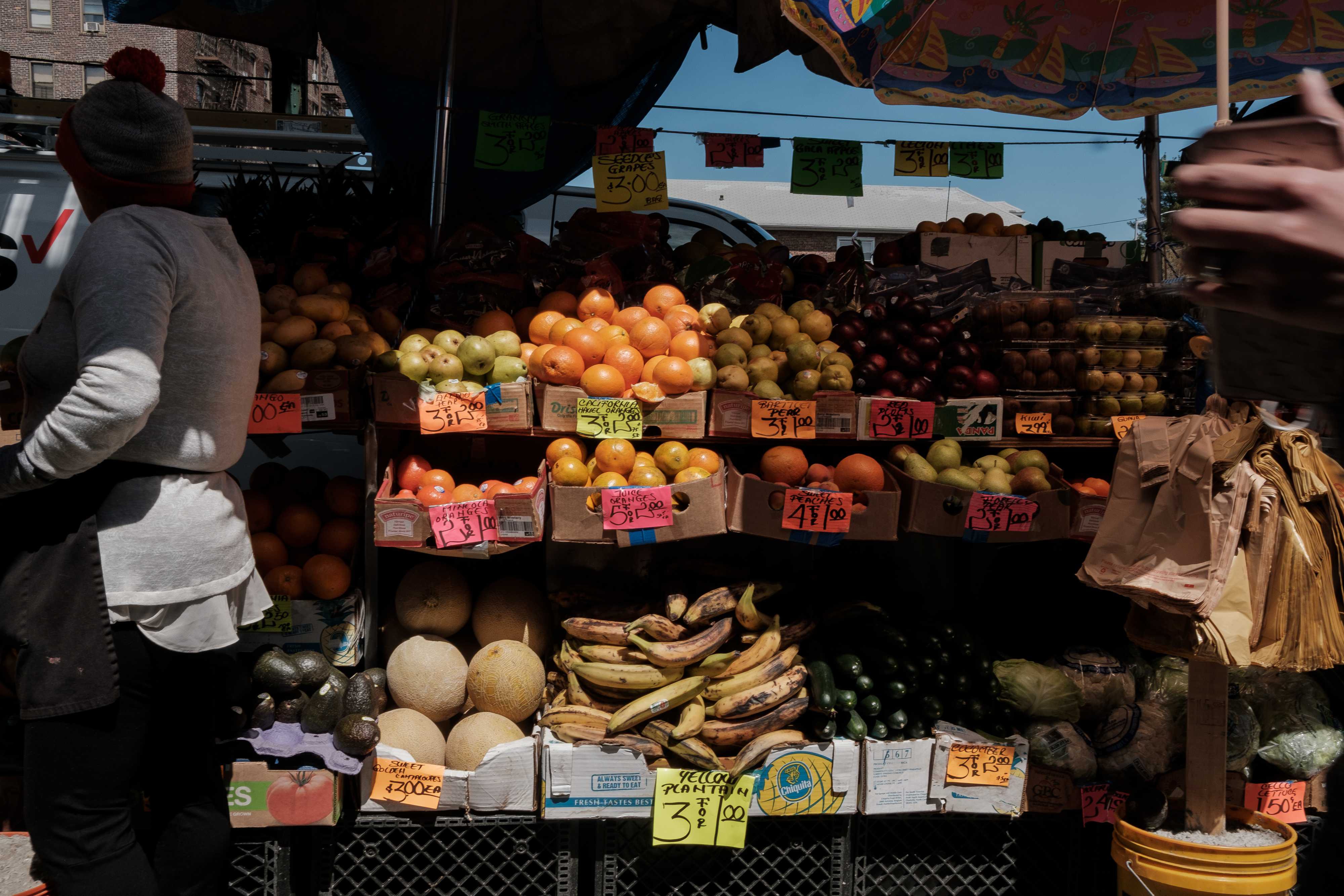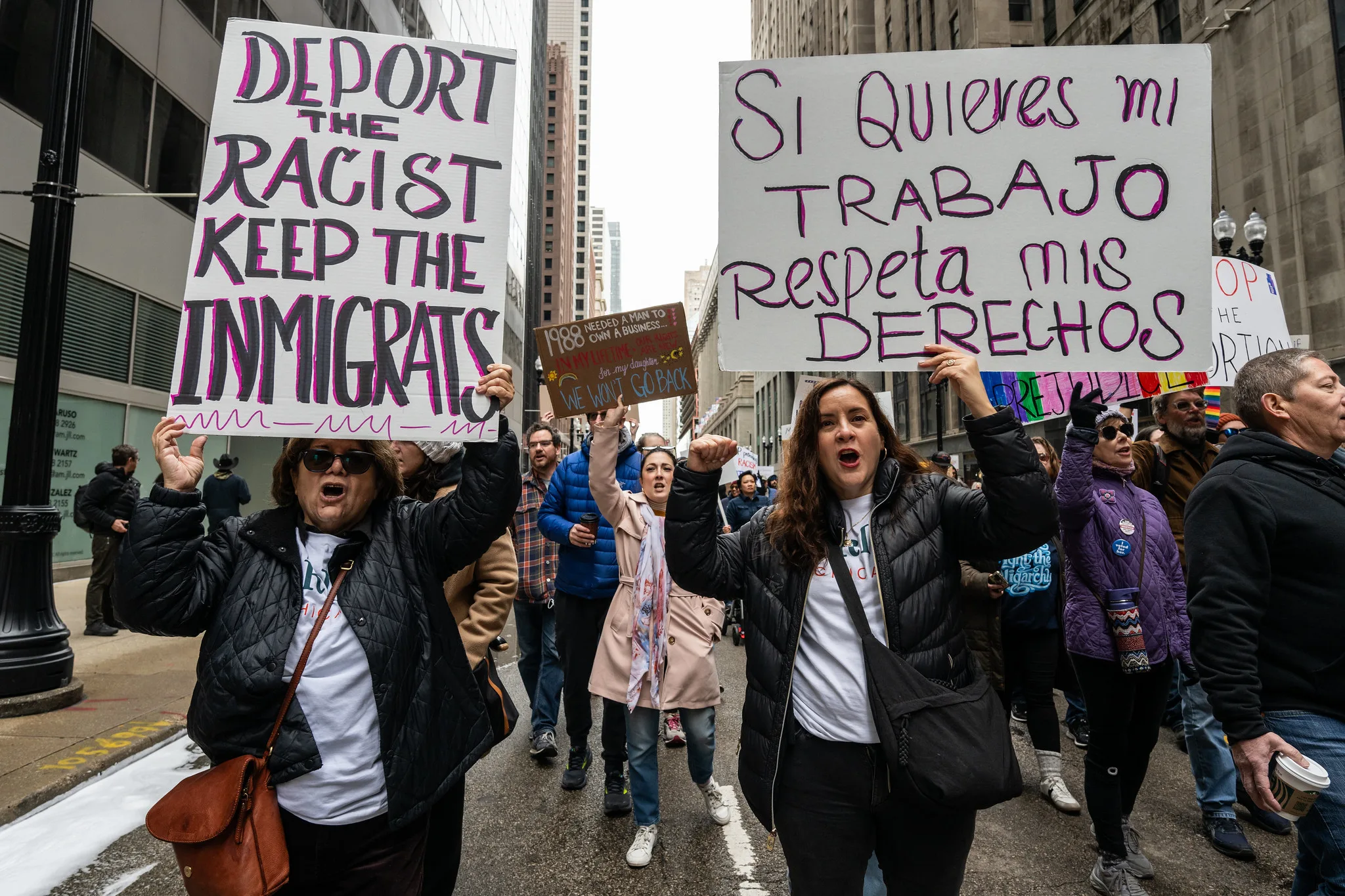This article was originally published on City Limits

Thousands of workers lost their jobs during the pandemic, and many took to the streets to peddle whatever they could: fresh mango slices, watermelon strips for summer thirst, masks, disinfectants, or any other type of goods not yet offered nearby the sidewalk chosen as the point of sale.
As the pandemic changed the nature of street vending in the city, elected officials this year also overhauled how it regulates the industry, shifting enforcement over to the Department of Consumer and Worker Protection (DCWP).
The DCWP—formerly the Department of Consumer Affairs (DCA)—took over inspection functions previously handled by the NYPD in January, a change celebrated at the time by street vendor advocates and street vendors themselves, because a civilian department would be partially in charge of enforcement.
DCWP didn’t start actively enforcing vendor violations until June 1, and instead spent the first half of the year conducting educational outreach with vendors and advocates, the agency says, holding 30 “education walks” in popular vendor corridors to disseminate inspection checklists and promote compliance with the rules. During that same period, the NYPD issued 108 civil summons and 14 criminal summons related to street vending, according to the police department’s quarterly reports.
Authorities had eased up on vendor enforcement during the pandemic, but that has changed in recent months: Between June 1 and Aug. 31, DCWP conducted 1,508 city street vending inspections and issued 424 tickets for violations including, among many others, vendors not being licensed. That figure slightly surpasses the quarterly average of civil vending summonses issued by the NYPD in 2019: 402.
María Isabel Zhinin, a mango vendor in downtown Brooklyn, was among those recently ticketed.
Also Read: Hundreds Turned to Street Vending After Losing Their Jobs. Now, They Face $1,000 Fines.
“I didn’t realize they were taking pictures of me,” says Zhinin, who was later approached by DCWP inspectors. “Yes, I have my ID,” she said, “and I showed them the license [issued by the Department of Health & Mental Hygiene] to sell fruits.”
But the inspectors asked if she also had a mobile food vendor permit. Under city rules, mobile food vendors are required to have both a license and a permit from the Department of Health. Zhinin said no to the latter, and the inspectors gave her a $1,000 ticket.
While Intro.1116-B, passed by the City Council earlier this year, add 4,000 new supervisory licenses over the next decade starting in 2022, obtaining one now remains one of the biggest hurdles for vendors, because for years the city imposed an ironclad limit on the number of licenses it issued. This has made it virtually impossible to obtain one, and has also opened the door for a black market. (The only exception to the limit imposed decades ago is for certain veterans residing in New York State, or their surviving spouses/domestic partners.)
Zhinin says she has no other alternative than to eke out a living as she has invested what she has to sell bags of chopped mango, watermelon, and quenepas (Spanish limes) for $4. Since the pandemic began, sales have dropped, and since more and more street vendors also offer these fruits, she has been selling an average of $100 a day for months. “Since sales got bad I can’t save money,” she said with worry.
The 61-year-old says that in the more than eight years she has been working on downtown Brooklyn sidewalks, she has had to pay more than $10,000 in tickets.
“Under [former Mayor Michael] Bloomberg I was getting ticketed all the time,” Zhinin recalled. “During the pandemic, I didn’t get tickets,” she added. Until now.
Also Read: Street Vendors Protest Exorbitant Fines as City Reopens
The enforcement is a response to complaints from community boards, Business Improvement Districts (BIDs), advocates, and elected officials: Since Jan. 15, DCWP has received 4,177 complaints about street vending. Critics have argued unlicensed vendors create litter, clog sidewalks and compete with brick-and-mortar stores; supporters dispute this, saying street carts increase foot traffic to neighborhoods and are integral to the city’s economy.
The areas with the highest number of vendor complaints DCWP received were Midtown, Chelsea, and Soho in Manhattan; Jackson Heights and Flushing in Queens; and the area where Zhinin sets up shop, Fort Greene/Atlantic Terminal in downtown Brooklyn.
“Vending is a complicated issue that touches us all—from the vendors themselves to local businesses to residents and visitors,” a DCWP spokesperson said in a statement. “Our goal is to hear concerns from everyone involved and strike a balanced approach that is equitable for all, which includes ongoing education coupled with scaled, strategic enforcement, especially in problematic areas.”
DCWP is also home to the newly-formed Office of Street Vendor Enforcement, which was officially installed there in March 2021 because the new law required it to be operating by September 2021. DCWP says it is ahead of schedule, and while the agency has only 14 current staff members dedicated to conducting vending inspections, it is hiring 10 additional inspectors.
After receiving her ticket, Zhinin alerted one of her friends who also sells in the same area, who unlike Zhinin, is undocumented. If a vendor does not pay their fine, it will be sent to collection, and if the vendor is licensed by the Department of Health, as Zhinin is, her license could be impacted. Zhinin keeps going out to sell and is very worried because she doesn’t know how else she will raise the money to pay off the debt of her ticket in time.
Street vendor advocates have noticed the recent uptick in the number of tickets. “Drawing a ticket helps nobody,” says Carina Kaufman-Gutierrez, deputy director of the Street Vendor Project.
In 2021 alone, the SVP added 530 new members, who joined the 1,800 members it had prior to the pandemic. The additions are both longtime vendors who somehow had not engaged with the organization before, and others who just started out in the industry out of necessity. The organization is in the process of onboarding 400 more members, according to Kaufman-Gutierrez.
Street vendors are the city’s smallest small-business owners and entrepreneurs, she says.
“They should be given education and opportunities to formalize their businesses instead of punitive fines,” she said.














